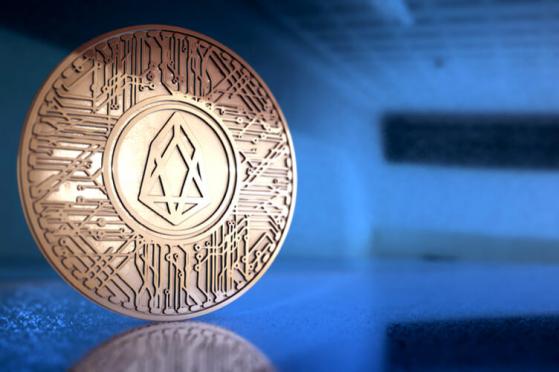The EOS token lockdown is coming within hours - and those who forgot to register may have to wait for remedial actions from the team. The EOS project is constantly sending reminders for the completion of the process:
https://twitter.com/EOS_io/status/1001810573326258177
The Exodus wallet has also warned it would not serve as a mechanism to acquire the new tokens. Exchanges are the only platforms that would be capable to instantly credit the new balances. For one unlucky user, the registration on one of the EOS support sites also endangered $10 millions’ worth of funds, luckily intercepted with a warning.
https://twitter.com/EOSauthority/status/1001910039626559488
The EOS market price has stabilized at $12.37, up a net 14% in the past seven days, and climbing tentatively in the past hours. EOS has been sliding slowly in the past month, both in dollar terms, and against Bitcoin.
!EOS!
In a crypto market with generally thinned out volumes, the demand for EOS takes trading to round 7.6% of all deals, while Ethereum regained its popularity with more than 12% of trades. EOS has clearly become the winner and the most prominent project in the past months, but this has not stopped the criticisms that the price rise was a concerted operation.
The last completed EOS auction achieved a price of below $12. Still, the latest month of daily auctions saw robust daily proceeds of Ethereum, with nearly 40,000 tokens paid into the auction. The rough estimates see Block One sitting on as much as $4 billion in Ethereum.
For this precise reasons of having such a large ICO, there are skeptics about the project’s success:
https://twitter.com/altcointhoreau/status/1001824859180224513
But the biggest criticism comes from perceptions that the daily auctions were a mechanism for EOS price manipulation, also encouraging a form of betting against the market price.
https://twitter.com/stephendpalley/status/1001835054014791680
Following the mainnet launch, EOS holders should, potentially, vote for node producers. The elections will be ongoing, without a set date, and depend on staking coins. EOS has unrolled wealth-based voting, giving more weight to larger holders. Unfortunately, the EOS voting may turn out too hard for the regular user, since the actual voting process may require command line prompts.
Recently, Thomas Cox, blockchain governance expert, explained the politics of EOS approval voting, rationalizing the reason for giving more weight to larger wallets. And while voting may sound like a good idea, in practice, the EOS network may easily fall into the hands of a few wealthy holders.
This article appeared first on Cryptovest
